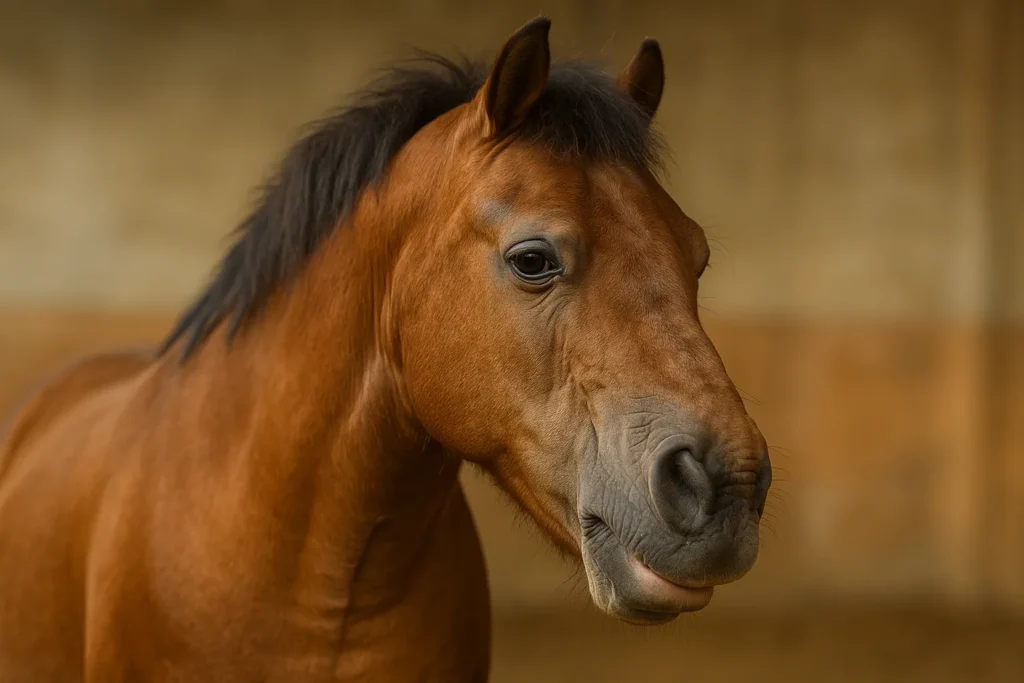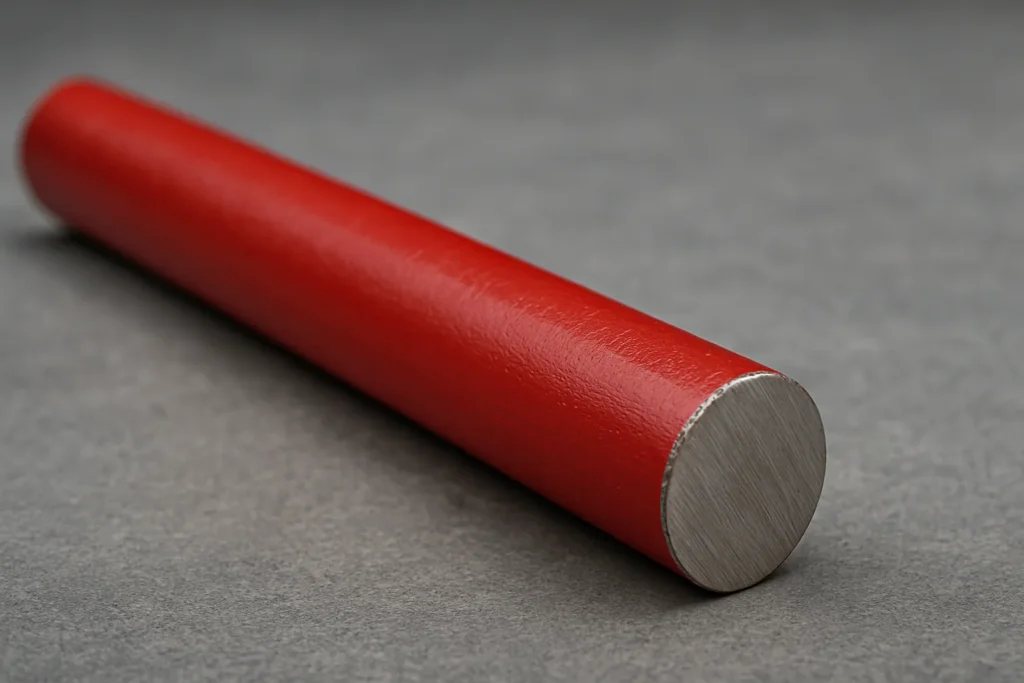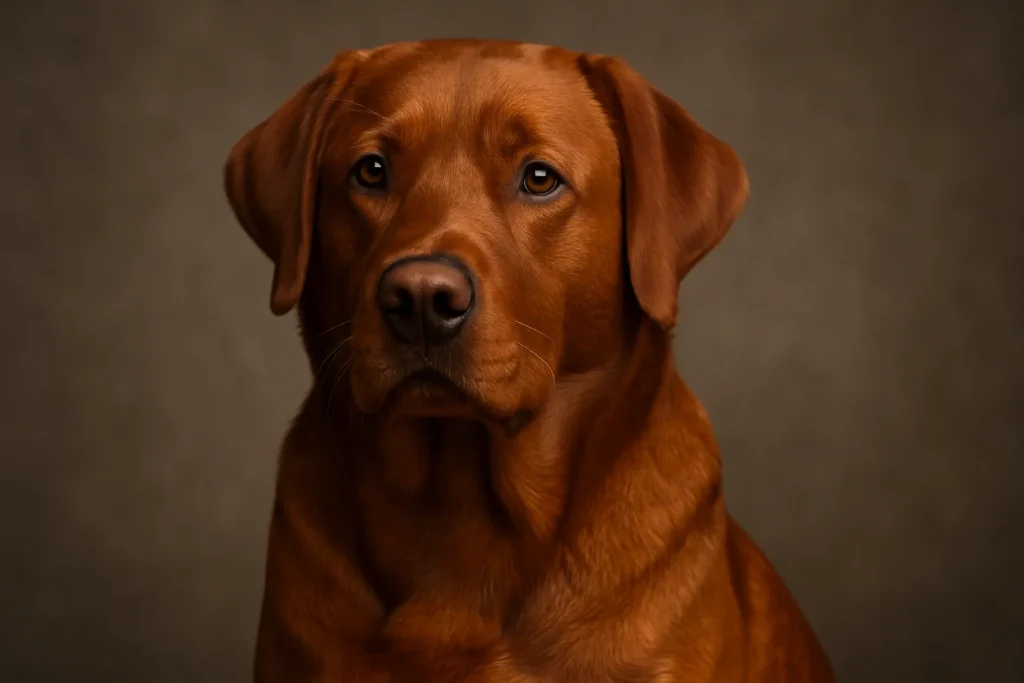If you’ve ever searched for a horse with Down syndrome, you’re not alone. The phrase often comes up because people see photos or stories online and wonder if horses can really have the same condition that affects humans. It’s a natural question for anyone who loves animals and is curious about their health.
The truth is, horses cannot have Down syndrome in the way humans do. Down syndrome is caused by an extra copy of chromosome 21 in people, and horses have a completely different set of chromosomes. But here’s where the confusion begins—horses can develop certain genetic conditions, known as trisomies, where they are born with an extra chromosome. These conditions don’t match Down syndrome exactly, but sometimes the physical traits or health issues may look similar.
In this article, I’ll walk you through the science behind this topic, explain what researchers have discovered about chromosomal abnormalities in horses, share how vets approach these rare cases, and gently clear up some common myths. By the end, you’ll have a clear understanding of what’s fact, what’s misconception, and how to care for horses who face unique health challenges.
What Does “Down Syndrome in Horses” Really Mean?
When we talk about Down syndrome in humans, we’re referring to a genetic condition caused by an extra copy of chromosome 21. This extra chromosome leads to distinctive facial features, developmental delays, and certain health challenges. It’s well understood in human medicine, and most people are familiar with it.
But when people ask, “Can horses have Down syndrome?” the answer is a gentle no. Horses don’t have a chromosome 21 the way humans do. Their genetic makeup is completely different, which means they cannot develop the exact same condition. So if you see the phrase “horses with Down syndrome” online, it’s often being used loosely, sometimes even incorrectly.
That said, horses can develop what’s known as equine trisomy. This means they are born with an extra chromosome—just not the same one that causes Down syndrome in humans. These rare cases can lead to physical or developmental differences in horses, which is why some people draw a comparison. While it isn’t truly “Down syndrome,” it is a genetic abnormality that may cause a horse to look or behave in unusual ways.
So, in simple terms: horses don’t get Down syndrome, but they may show conditions that look somewhat similar. That’s where the confusion comes from—and it’s also where veterinary science helps us understand the difference.
Scientific Evidence of Trisomy in Horses
Even though the phrase “a horse with Down syndrome” is not scientifically accurate, researchers have documented rare genetic cases that help explain why people sometimes make the comparison. These cases involve trisomy, which means a horse is born with one extra chromosome.
Over the years, veterinary geneticists have identified a handful of live-born foals with trisomies affecting chromosome 26, 27, 28, 30, and 31. Among these, chromosome 26 is especially interesting, because parts of it are considered homologous—meaning closely related in genetic structure—to human chromosome 21. That’s the same chromosome responsible for Down syndrome in people. This genetic similarity is why some of the effects seen in horses can faintly resemble what happens in humans.
The signs recorded in these foals were not identical, but there were recurring patterns. Some had unusual facial shapes, others showed difficulty with movement or coordination, and a few experienced neurological issues that affected their behavior. Health complications like infertility or metabolic problems were also observed. Sadly, most of these foals had shorter lifespans or significant medical challenges.
These rare cases highlight an important truth: while no horse can truly have human Down syndrome, equine trisomy is real, and it can create visible and functional differences in a horse’s life.
Signs & Characteristics of Horses with Genetic Abnormalities
When people talk about “horses with Down syndrome traits,” they are usually noticing the visible or behavioral differences that can appear in foals born with genetic abnormalities like trisomy. While every case is unique, veterinarians and researchers have observed some common patterns.
Physical features are often the first signs. Some foals show an unusual skull or face shape, which might give them a slightly different appearance compared to typical horses. Others may have limb deformities—legs that are bent or not positioned normally—or dental issues like an overbite, which makes chewing more difficult.
Alongside the physical signs, there may also be neurological or behavioral traits. These horses can show poor coordination, meaning they stumble more often or move awkwardly. In some cases, they may experience learning delays, struggling with basic training compared to other horses of the same age.
Finally, there are important health challenges to consider. Horses with trisomy often face infertility, meaning they cannot reproduce, and they may also be more prone to metabolic disorders. Breathing difficulties or unusual gait issues—the way they walk or run—are also reported.
These traits don’t mean the horse can’t be loved or cared for. What they do show is that such horses need extra attention, patience, and veterinary support to live as comfortably as possible.
How Vets Diagnose Equine Trisomy
For most horse owners, the first sign that something may be different appears soon after a foal is born. If a young horse has an unusual facial shape, struggles with standing or nursing, or shows clumsy movements, it can make you wonder if there’s an underlying condition. These are the moments when a veterinarian may start to suspect a genetic abnormality like trisomy.
To confirm, vets rely on diagnostic methods rather than guesswork. The most common tool is karyotyping, which is essentially creating a picture of the horse’s chromosomes under a microscope. This lets specialists count and analyze them to see if an extra one is present. More advanced techniques, like FISH (Fluorescence In Situ Hybridization) and STR genotyping (Short Tandem Repeat analysis), allow scientists to look more closely at the horse’s DNA and confirm whether a trisomy is causing the unusual traits.
It’s also important to separate trisomy signs from other, more common equine disorders. For example, a foal with coordination issues might have a neurological problem unrelated to genetics, or dental problems could come from injury rather than chromosomal differences. That’s why genetic testing is so valuable—it helps provide clear answers, so owners know whether they’re dealing with a rare trisomy case or another manageable condition.
By working closely with a veterinarian and using these tools, horse owners can better understand what’s happening with their animal and make informed choices about care.
Miniature Horses & Special Cases
Sometimes people specifically ask about a mini horse with Down syndrome or wonder if miniature horses with Down syndrome are more common. The truth is, trisomy and other chromosomal abnormalities are rare across all breeds and sizes, so miniature horses are not uniquely at risk. But when these tiny horses do have genetic issues, the impact can feel greater because of their naturally smaller body size.
A miniature horse with a genetic anomaly may struggle more with mobility, joint health, or dental problems simply because their bodies are already compact and delicate. Even a slight limb deformity or overbite can create bigger challenges for them compared to a full-sized horse. Their growth and development can also be more sensitive to health problems, making attentive care especially important.
When it comes to care needs, miniature horses often require extra dental check-ups, careful feeding routines, and close monitoring of their weight and joints. For those with genetic abnormalities, these steps become even more critical. Owners often find that patience, gentle training, and creating a safe, well-adapted environment can make a huge difference in helping these small horses live more comfortably.
So while miniature horses aren’t more likely to develop trisomy, the effects may be more noticeable when they do. With the right veterinary guidance and consistent care, however, they can still enjoy a good quality of life.
Caring for a Horse with Genetic Challenges
When a foal is born with a genetic condition, the first instinct of most horse owners is love mixed with worry: “Can my horse still live a good life?” The answer is yes—though it does require consistent veterinary care and thoughtful daily management.
The foundation is regular check-ups. Horses with chromosomal differences often need closer monitoring of their teeth, hooves, and joints. Dental issues, such as an overbite, can make chewing difficult, so a vet or equine dentist may need to adjust the bite or recommend softer feeds. Similarly, hoof and limb care are essential. Weak joints or bent legs can benefit from corrective trimming, specialized shoes, or even light physical therapy.
Beyond health checks, their environment plays a big role. A horse with poor coordination should have a safe stall design—no sharp edges or slippery floors—and careful herd management, so they aren’t bullied or injured by more dominant horses. Gentle exercise is still important, but it should be adapted—shorter sessions, level ground, and controlled playtime help keep muscles strong without risking injury.
Caretakers often share that these horses respond best to patience and kindness. Simple things, like feeding them separately to avoid competition or using positive reinforcement during training, can ease daily stress. Owners sometimes describe them as especially affectionate, perhaps because they rely so much on human support.
With the right blend of professional care and compassionate handling, horses with genetic challenges can still enjoy comfort, companionship, and a meaningful place in the stable.
Breeding, Ethics & Veterinary Advice
One of the most sensitive questions that comes up is whether a horse with trisomy—or any serious genetic abnormality—should be bred. From a veterinary perspective, the answer is no. Breeding a horse with known chromosomal issues can pass on complications, increase suffering, and create foals that struggle with health problems from the start.
This is where breeder responsibility becomes so important. Responsible breeders use genetic screening, careful record-keeping, and veterinary guidance to reduce the risk of passing on harmful traits. Choosing not to breed a horse with trisomy isn’t just about genetics—it’s about protecting the wellbeing of future foals and the overall health of the breed.
At the same time, there’s a need to balance compassion with animal welfare. Many owners deeply love their horse, even if it has special needs. Showing that love through daily care, patience, and kindness is absolutely worthwhile. But allowing such horses to reproduce can create a cycle of suffering. True compassion often means enjoying their companionship while also making thoughtful, responsible decisions for the greater good of the animal community.
As veterinarians often remind us: caring for a horse with trisomy is a commitment of the heart, but breeding decisions should always come from the head—and from a place of responsibility.
Myths, Memes & Misconceptions
If you’ve come across the phrase “horse with Down syndrome Family Guy” or seen viral memes about horses with unusual faces, you’re not alone. These images and jokes spread quickly online, often sparking curiosity and confusion. Some show real horses with genetic differences, while others are simply edited or exaggerated for comedy.
The problem is that these memes can be misleading. They give the impression that horses can have the same condition as humans with Down syndrome, which isn’t true. As we’ve discussed, horses don’t have a chromosome 21 like people do, so they can’t develop human Down syndrome. What they can have are other rare chromosomal abnormalities, such as trisomy, which may cause unusual appearances or health issues.
It’s important to remember that while the internet might find humor in these memes, the horses behind them—if they’re real—are living beings who may already be facing medical challenges. Treating them with kindness, rather than using them as jokes, shows true respect for animals.
So the next time you see a “horse with Down syndrome” post online, take it with a grain of salt. Behind the laughter, the reality is far more complex—and far more deserving of compassion and understanding.
Expert Insights & Case Examples
Veterinary researchers have studied a handful of rare cases where foals were born with trisomy, and their findings shed light on why people sometimes compare these conditions to Down syndrome.
In one published case involving chromosome 26, scientists noted that the foal displayed unusual facial features, neurological difficulties, and fertility issues. Because chromosome 26 in horses shares similarities with human chromosome 21, researchers pointed out that this condition could be considered the closest equine equivalent to human Down syndrome—though still genetically different. Another case involving chromosome 27 documented a foal with growth delays, musculoskeletal problems, and a noticeably shorter lifespan. These studies highlight how diverse the effects of trisomy can be.
Veterinary geneticist Dr. Barbara Wallner once explained in her work that while horses cannot have Down syndrome, “equine autosomal trisomies are rare but informative. They remind us that chromosomal imbalances can appear in many species, though the outcomes differ.”
Caretakers who have worked with such horses often describe both the challenges and joys. Daily management might mean softer feed to handle overbites, carefully trimmed hooves to support weak joints, or keeping the horse in a safe paddock to avoid injury. Yet owners also share that these horses can be deeply affectionate, forming strong bonds with the people who care for them. Their resilience often inspires those around them, even if their lives are shorter or more complicated.
These insights—both from science and from hands-on experience—help us see beyond the myths. They remind us that while no horse truly has “Down syndrome,” some live with conditions that deserve just as much attention, care, and compassion.
Conclusion
To put it simply, a horse cannot have Down syndrome in the same way humans do. Their genetic structure is different, and the condition we know in people doesn’t exist in horses. However, rare cases of trisomy—where a horse is born with an extra chromosome—do happen, and sometimes the effects can look a little similar. These foals may show unusual features, behavioral differences, or health challenges that make their care more demanding.
For any owner who suspects something unusual, the best path forward is to work closely with a veterinarian. Through proper testing and observation, vets can confirm whether a horse has a genetic condition and guide owners on the right steps for management. Guesswork, or relying only on what’s seen online, often leads to misunderstanding.
Most importantly, while these cases are uncommon, horses with genetic differences still deserve patience, informed care, and compassion. They may require extra attention, but with the right support, they can live meaningful lives and form strong, affectionate bonds with the people who look after them. And perhaps that’s the most important lesson: even when a horse is born different, it can still bring joy, love, and inspiration to those around it.
FAQ Section
Can horses have Down syndrome?
No, horses cannot have Down syndrome as humans do because they don’t have a chromosome 21. However, they can develop rare genetic conditions called trisomies, where they are born with an extra chromosome. These may cause traits that look somewhat similar, which is why the comparison comes up.
How rare is trisomy in horses?
Extremely rare. Only a handful of live-born cases have ever been documented in veterinary research. Most foals with serious chromosomal abnormalities don’t survive, which makes the few reported cases particularly unique.
Do miniature horses get Down syndrome?
Miniature horses cannot have Down syndrome either, but like other breeds, they can experience genetic issues such as trisomy. Because of their small size, the effects of health problems may seem more noticeable or challenging to manage.
What signs should owners look for?
Common signs of genetic abnormalities in foals include unusual facial structure, limb deformities, overbite, coordination problems, or developmental delays. If you notice anything unusual, it’s best to consult a veterinarian for a proper diagnosis.
Do horses with trisomy live shorter lives?
In most cases, yes. Horses with trisomy often face significant health challenges and may not live as long as healthy horses. Still, with the right care, they can enjoy comfort, companionship, and meaningful connections during their lifetime.

Hi, I’m Bilal, the founder of outofmagazine.com. I love sharing fresh ideas, stories, and helpful insights on all kinds of topics that spark curiosity. My goal with this site is simple—to create a space where readers can find inspiration, useful tips, and engaging reads on lifestyle, trends, and everything in between.



